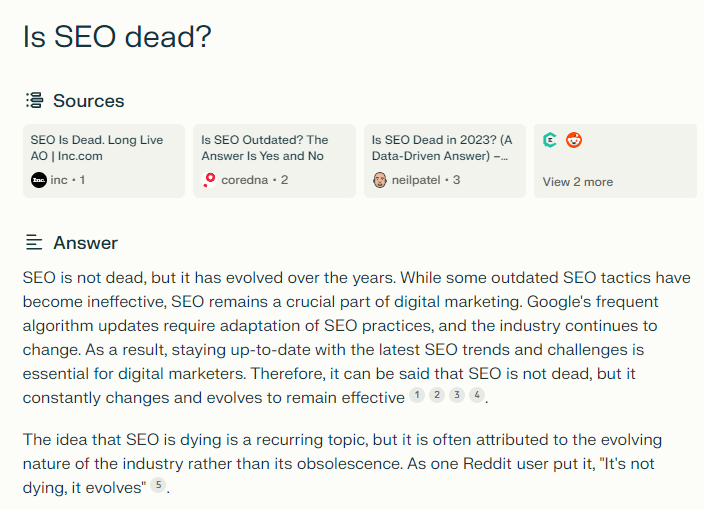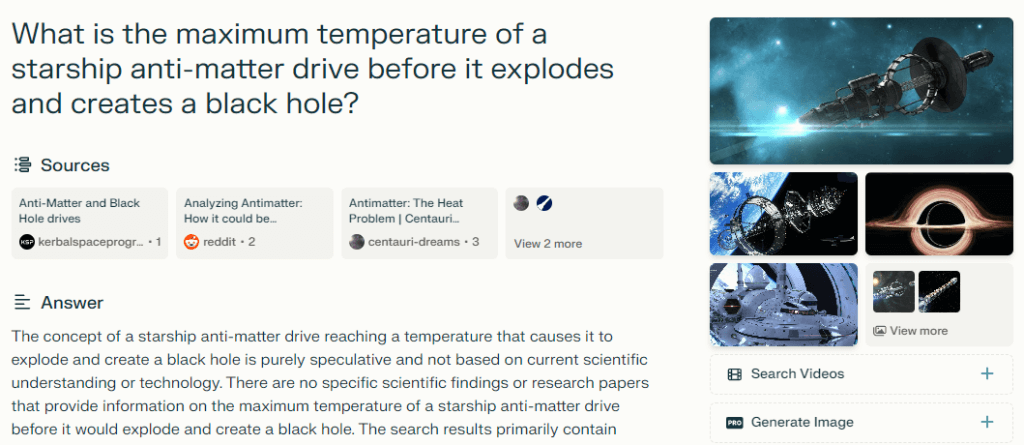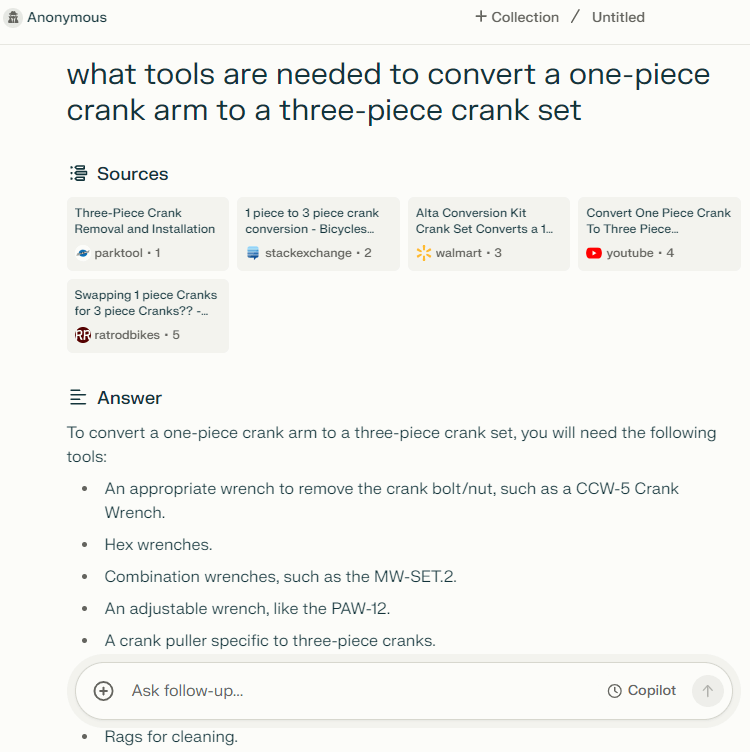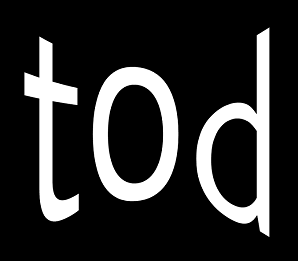Click to Read Sections:
Who Needs Search Results When AI Provides the Answer?
AI-powered answer engine Perplexity.ai just attracted millions in investment from a venture capital company and Jeff Bezos and is poised to give Google a run for its money. There’s a free version running on ChatGPT 3.5, and Perplexity Pro which costs $20 per month and gives users access to ChatGPT 4-driven answers or other powerful AI models, plus advanced features, such as the ability to upload files and create images.
Perplexity doesn’t just give search results; it scours the web and uses AI to write a summary of what it finds. These answers display Wikipedia-style citation links to the sources it used, and tile-ad sized links appear in a panel above the response for an easy click. It also uses a Copilot feature to help form the right question and ask relevant follow-up questions. You can use the Copilot six times every four hours without upgrading to the paid version.

You can limit the sources to only academic papers or YouTube, for example, and Perplexity will find videos and convert them to step-by-step instructions. There are no paid search ads; just answers – when it finds them. When it doesn’t find answers, it says so instead of hallucinating something that sounds good.

Will AI-powered Answer Engine Perplexity Replace SEO?
Highly unlikely, because first: it uses a subscription revenue model that encourages giving a great answer – not just serving ads based on the highest bid for a keyword; and second: it still provides organic results to the sources it used where users can find more information. Could Google copy this business model and convert itself to giving only Bard answers instead of search results and ads? Yes, they could probably have it up and running in fifteen minutes, but it would mean flipping its entire business model over like a flapjack or maybe a jackknifed semi-truck. Google would need to reinvent itself to replace the $162.45 billion in search advertising revenue that accounted for 58.1% of its total revenue in 2022.
How Well Does Perplexity Work?
I gave Perplexity a test with the following question: “How do you convert a bicycle with a one-piece crank arm to a three-piece crank set?” It scanned YouTube videos and boiled down the process to an oversimplified three-step process that failed to impress me. If my search intent was casual, I may have stopped right there. But wanting to know more, I needed to click one of the YouTube videos it cited and first watch an ad that enriched the content creator. Plus, Copilot suggested another, more specific question: “What tools are needed to convert a one-piece crank arm to a three-piece crank set?” Perplexity gave me a shopping list of tools including links to its sources plus prominent links where I could buy them such as Walmart.com. If I was the SEO for Walmart, I’m rewarded for being one of their sources by getting an organic visit and hopefully a transaction.

Are We Entering the Age of Website Answer Optimization?
So if an answer engine replaces a search engine would SEO be called AEO – as in answer engine optimization? With Perplexity, Bard, Bing, and ChatGPT stealing searches away from Google’s usual ads and search results, it’s definitely going down that road. And since these answer engines display fewer links and citations, SEO (sorry, I mean AEO) is poised to be even more competitive and important than ever.

